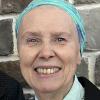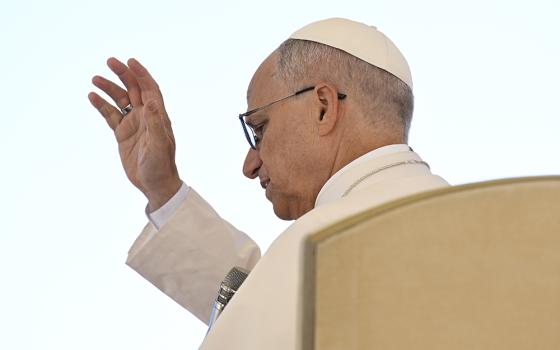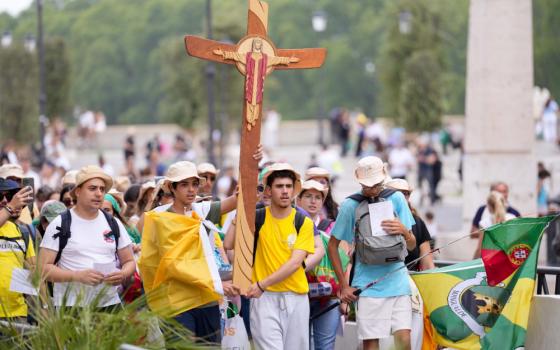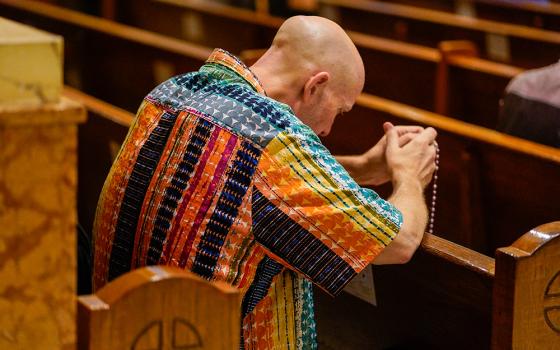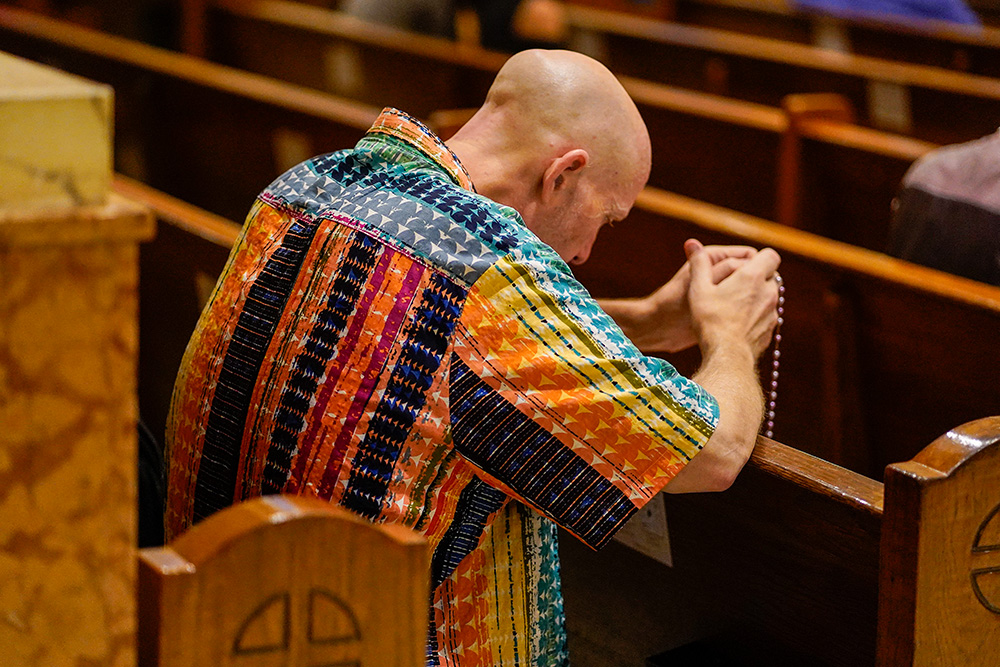
A worshipper prays prior to the annual "Pre-Pride Festive Mass" at St. Francis of Assisi Church in New York City June 29, 2024. The liturgy, hosted by the parish's LGBT+ ministry, is traditionally celebrated on the eve of the city's Pride parade. (OSV News/Gregory A. Shemitz)
Like millions of the world's poor, and not so poor, I miss the warm, good-hearted, down-to-earth Pope Francis.
His personality came through not only in his loving words, but also in his magnanimous gestures. His visits to prisoners in Rome and other countries; to migrants on the Italian island of Lampedusa; to First Nations peoples in Canada, Mexico and Peru; to private and public meetings with LGBTQ+ people in Rome and in his travels.
These are but a few of the countless outward signs that gave substance and meaning to his words of acceptance of all people.
And like millions of the world's Catholics, I have been waiting to see how Pope Leo XIV will carry out Francis' legacy.
Two days after his election, Leo affirmed his intention to continue his predecessor's vision in his address to the College of Cardinals. Then, in speaking to the diplomatic corps, he emphasized the church's mission to promote justice and peace, calling for dialogue and respect for human dignity. And he has strongly supported immigrants and refugees.
I was surprised, and pleased, to read about Leo's Afro-Caribbean roots through his maternal grandparents. I am delighted with his desire to foster Christian unity, his attention to economic and social justice, and his concerns about artificial intelligence and the environment.
Because of my 50+ year ministry on behalf of LGBTQ+ people, I have been especially anxious about whether Leo will continue the warm welcome that Francis extended to LGBTQ+ people.
So I was especially happy when the Vatican announced that Pope Leo met for half an hour on Sept. 1 with Fr. James Martin, the Jesuit editor and author who founded Outreach, a Catholic LGBTQ+ online resource.
Martin reported that Leo plans to continue Francis' policy of welcoming LGBTQ+ people into the church. "I heard the same message from Pope Leo that I heard from Pope Francis, which is the desire to welcome all people, including LGBTQ people," Martin said in an interview after the audience.
This is certainly a time for rejoicing among LGBTQ+ people and their families, friends and advocates.
Leo has publicly stated that he will continue the path of his predecessor regarding LGBTQ+ ministry. This is something to celebrate.
But what does this mean? Will Leo meet with LGBTQ+ people, will he affirm their right to life in countries in which they can be executed, will he eat and drink with transgender people, as Francis did? Will he greet the more than 1,000 LGBTQ+ Holy Year pilgrims who will pray in vigil at the Jesuit Church of the Gesù in Rome on Friday (Sept. 5) and walk to St. Peter's Basilica the following day?
I am hoping that his actions will affirm his hospitable words.
I have a further concern. In a 2023 Catholic News Service report, the future Leo, then-Cardinal Robert Prevost, underscored that doctrine had not changed. Although his remark may be reassuring to traditionalists, the church's language of "intrinsically disordered" acts and an orientation that is an "objective disorder" is the source of great pain for the LGBTQ+ people with whom I minister.
Francis never changed church teaching, but he set up the mechanism to reform it, and this is the great hope of LGBTQ+ people and their ministers.
I firmly believe that this offensive language will ultimately be excised from the Catholic catechism through Francis' signature project of synodality, which Leo has also wholeheartedly endorsed.
Advertisement
Synodality is a process of respectful listening and sharing, a process of trying to get into the other person's shoes, to feel and to empathize with their understandings. It is not a time to argue, but to communicate one's own feelings and experiences and to listen to the feelings and experiences of others.
Our church, indeed our whole world, needs to be a place of discussion and dialogue where everyone can feel free to share their experiences and their truth. This is the path of a missionary in an inclusive church.
This process is long and often painful, but it is a process which will enable the church to change. As St. John Henry Newman said in his Essay on the Development of Christian Doctrine, "To live is to change and to be perfect is to have changed often." Like all living things, our church's doctrines develop over time, revealing more of the truth as we remain faithful to the core of our tradition.
But what, my LGBTQ+ friends ask me, am I to do in the meantime? I remind them that the Catholic Church's most important teaching is the primacy of one's own conscience. As another pope (Benedict XVI) once wrote, "Over the pope as an expression of the binding claim of ecclesiastical authority, there stands one's own conscience, which must be obeyed before all else, even if necessary against the requirement of ecclesiastical authority."
So until we see that change in the church's sexual teaching, we have been blessed with Leo XIV, whose priorities to work for peace, particularly in Ukraine, Gaza and Myanmar, as he told Martin, include a commitment to a church for "todos, todos, todos," in the words of Francis.
That should make LGBTQ+ people and their allies feel secure.
